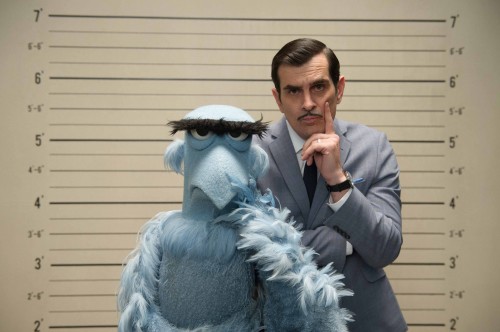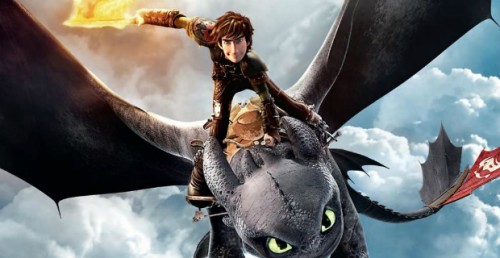By Greg Popil
When did cultural relevance become such an essential part of the Muppets experience?
Sometime after the tragic death of creator Jim Henson in 1990, the Muppets franchise began a slow slide into entropy, putting out movies that made less and less of an impact (although some, like the fun “Muppet Treasure Island” and “A Muppet Christmas Carol,” which is surprisingly faithful to the Dickens tome, remain underrated). This led to a backlash among Generation X-ers, whose cultish devotion to the Muppets has led some to believe that they have to stand for something more than just good jokes and adorable characters: they have to represent something seemingly lost in entertainment, a sense of fun, yet intelligent innocence.
The irony, of course, is not only that that sense of fun has in no way disappeared from children’s entertainment (as displayed most prominently by the amazing run that Pixar went on in recent years), but that the original Muppets crew would not have paid these concerns any mind. The original show and movies were filled with dagger-sharp gags and great vocal performances (which the later movies have done a good job of replicating in Henson and Frank Oz’s absence), which is how the Muppets got so relevant in the first place. Unfortunately, that’s a lesson that the maker of the new movie “Muppets Most Wanted” don’t seem to understand.
Things start off well enough, with a fun opening number about doing a sequel featuring some good, self-aware gags about the general quality of follow-up movies and just how many sequels there have been in the Muppets franchise. After that, however, things start to drag. Despite their big comeback in the last film, you see, the Muppets have to struggle to stay on top, which means a world tour booked by Dominic Badguy (an agreeably oily Ricky Gervais). If you couldn’t guess it from that last name, Badguy has ulterior motives, involving a Kermit lookalike master criminal Constantine. At this point, James Bobin and Nicholas Stoller’s script descends into an extended, and not particularly fun, examination of just what makes the Muppets tick.
After Kermit is sent off to a Russian gulag prison run by warden Tina Fey (they figure out pretty quickly that they have the wrong frog, yet keep him locked up anyway. This movie is going to do gangbusters business in the Ukraine), Constantine’s poor leadership allows the tour to disintegrate and the Muppets to mope around, wondering how everything went wrong and why people aren’t enjoying their act anymore. The Muppets movies have always flirted with melancholy, but this kind of blatant self-pity is frankly beneath the Muppets and is not a lot of fun to watch. Meanwhile, we get yet another subplot about Kermit being hesitant to marry Miss Piggy (didn’t they get married at the end of “Muppets Take Manhattan?”), while new Muppet Walter frets about the Muppets’ soul being destroyed thanks to Constantine’s willingness to let the gang do whatever they want with the act.
To the film’s credit, it does manage to settle into a groove in the second half. One of the great advantages of the Muppets crew is its deep bench of characters, which can be put together in all sorts of fun combinations. “Most Wanted” sends the motley crew of Fozzie, Animal and Walter on a quest to save Kermit, and the curmudgeonly Sam the Eagle finally gets his own subplot, as an FBI agent who teams with Interpol’s Jean-Pierre Napoleon (Ty Burrell, doing a passable Inspector Clouseau riff). And Kermit’s adventures in prison actually manage to create some decent laughs, as he and Fey team up to put on a talent show that features prisoners in ballerina costumes and a show-stoppingly hilarious version of “End of the Road” by Boyz II Men. As with the previous film, “Flight of the Conchords’” Bret McKenzie’s songs are a highlight, particularly the Chonchords-esque slow jam “I’ll Get What You Want.” Nothing quite reaches the heights of the previous movie’s Oscar winner “Man or Muppet,” although to be fair, nothing is as awful as the whole Chris Cooper rapping debacle, either.
Eventually, Fozzie, Walter and Animal break Kermit out (he’s rather hurt that everyone else was too self-absorbed to notice that an obvious Russian doppelganger had replaced him. I can’t say that I blame him.) and they rush to stop Constantine from not only stealing a priceless treasure, but also breaking up the Muppets’ act, yet again. This territory has been tread upon so many times by previous Muppets movies you can practically feel the characters sinking into the ruts. Yes, we get it, the Muppets are a family, and family has to stick together, and making a couple of self-aware jokes about how we just went over all of this three years ago doesn’t make it any less of a chore.
In the lead-up to “Muppets Most Wanted,” the Muppets have been featured in a series of commercials, from the Electric Mayhem selling mid-sized sedans to Kermit and Animal espousing the virtues of hot tea. Whatever feelings you may have about the commercialization of these characters aside, these ads have been hilariously inspired bursts of lunacy, the kind of thing that the Muppets used to be counted on to pull off effortlessly. The makers of “Muppets Most Wanted” might want to take note: telling us how important the Muppets are isn’t nearly enough. You have to make them relevant by making them, before anything else, funny and fun.
Rating: 42/81



Leave a Reply